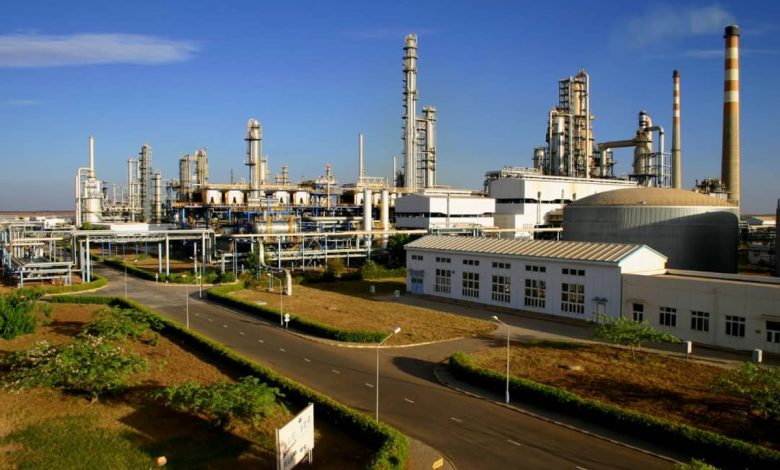Khartoum Refinery Destruction…High Import Bill

Report – Rehab Abdullah
The pages of Sudanese patriots were filled with widespread anger over the destruction of the Khartoum oil refinery, because the oil facility is of great importance in the production sector.
A statement issued by the Sudanese army revealed that the Gaily refinery and its annexed warehouses were completely destroyed, as a result of the ongoing battles between the army and the Rapid Support militia around the oil facility in a bloody struggle to control it as a strategic target in the operations of supplying motor energy to the military vehicles participating in the field battles whose area has expanded in vast areas throughout Sudan.
According to the statement issued on Saturday evening by the armed forces, the attack completely destroyed what remained of the Gaily refinery and its attached warehouses, accusing the Al-Daglo terrorist militia of targeting the Khartoum Gaily refinery for the second time this month.
Insistence on destruction
Over the past nine months, the Gaily refinery, which is located 70 kilometers north of the capital, Khartoum, on the eastern side of the Atbara-Khartoum Tahadi Road, has remained a strategic target and battlefield for the Rapid Support militia (RSF) since the outbreak of the war. It was subjected to five attacks that caused partial damage, but the last attack destroyed what the refinery and its warehouses remain completely destroyed.
Control center stops
However, the former Minister of State in the Ministry of Oil, a consulting engineer, Ishaq Jamaa, said in his speech to (Sudan Events) that the Khartoum refinery, after the control center was disabled on December 6, 2023, stopped completely because it could not be operated with the control center malfunctioning, and thus he confirmed that all supplies now come through import, pointing out that Sudan imports 70% of its needs as a result of the decline in internally produced crude oil, and on the other side of demand, Ishaq revealed the decline in demand by less than 25% due to the RSF militia seizing citizens’ vehicles, looting factories, and the immobilization of the remainder for fear of looting by the RSF Militia.
He confirmed that targeting the refinery is already on the agenda of those who are managing this war from afar through allied countries, and he attributed this to the fact that Sudanese oil was discovered by the American company Chevron, and there was a project to extract Sudanese crude until the bidding stage, but due to developments in the oil market in 1982 from Low prices of what is called oil glut, Chevron stopped the project, and when matters turned to the National Congress Party Authority in 1990, Chevron agreed to give up the license, but did not know that the license would go to Chinese companies to benefit from the crude oil explored in Sudan only by building some infrastructure and financing the operation. China has reaped huge profits from the Sudanese oil project, and Ishaq stressed that these untouched and forgotten issues, particularly in energy affairs, are the main driver of many conflicts and wars.
Refinery flow stops
A source at the Ministry of Energy confirmed that the flow of oil derivatives from the Gaily refinery has been halted since July, and the country’s needs are covered through imports only. He expressed his anger at the loss of an important facility valued at about two billion dollars.
High import bill
The import bill for petroleum derivatives rose after the war by 15%.
Target production
Former Undersecretary of the Ministry of Oil, Hamid Suleiman, said that the refinery is considered one of the largest petroleum facilities and the most important infrastructure in the country’s petroleum production sector, and contributes to the production of more than half of the country’s needs for gasoline and cooking gas, and a third of it for diesel, which are all extremely important products for daily life, agricultural and industrial production, transportation, and others. From sectors, he pointed out that targeting public facilities and infrastructure is internationally criminal, and prohibited by all laws and customs.
Refinery ownership
The refinery was owned equally by Sudan “Sudapet Company” and the Chinese National Petroleum Company, and its construction cost about $640 million. However, it has recently become fully owned by the government of Sudan. Sudan owns 3 other refineries, in Port Sudan and Al-Obeid in North Kordufan, and Abu Jabra in the west of the country, but their combined maximum capacity does not exceed 70 thousand barrels per day of various derivatives.



